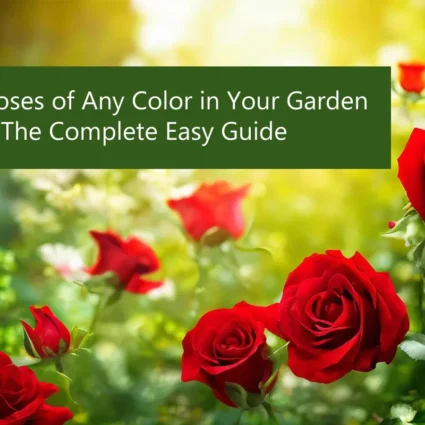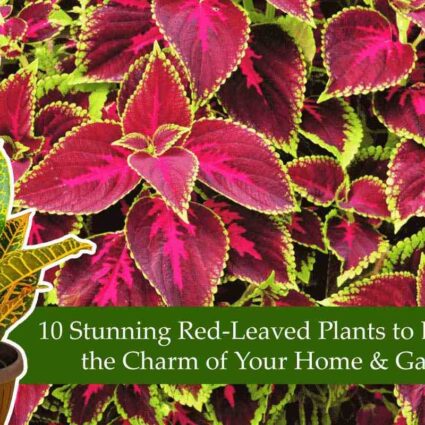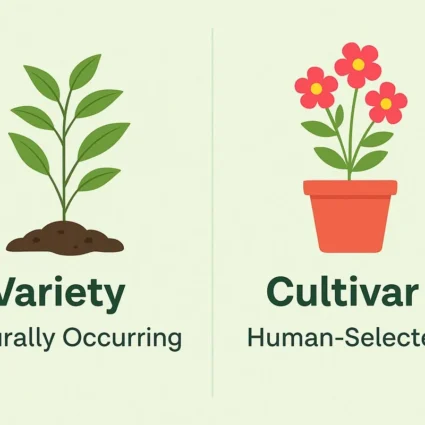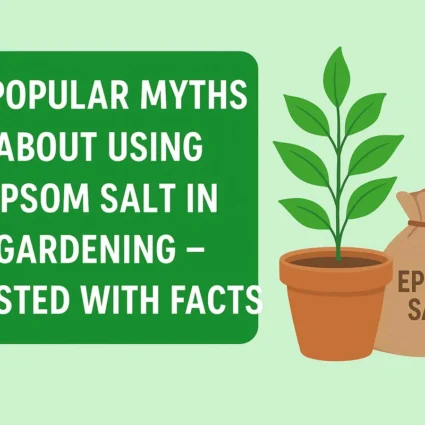
World Environment Day 2025: How Home Gardening Can Help Heal the Planet
Every year on June 5, people across the globe come together to celebrate World Environment Day, a movement led by the United Nations Environment Programme (UNEP) to raise awareness and promote action for the protection of our environment. The 2025 theme, “Restore Our Earth, One Step at a Time,” encourages individuals to make small yet impactful contributions to the planet’s well-being. One such step is home gardening.
In an age of climate anxiety and environmental degradation, home gardening has emerged as a powerful and accessible way to make a difference. Whether you have a backyard, a balcony, or a few pots on a windowsill, you can contribute to a greener future — one plant at a time.
The Environmental Benefits of Home Gardening
1. Reduces Carbon Footprint
Home gardening directly helps reduce carbon emissions. Plants absorb carbon dioxide (CO₂) and release oxygen, improving air quality and helping to combat climate change. When you grow your own vegetables, herbs, or fruits, you also reduce your dependency on store-bought produce that requires transportation and packaging — both major contributors to greenhouse gas emissions.
2. Promotes Biodiversity
Even small gardens can become mini-ecosystems that support beneficial insects like bees, butterflies, and ladybugs. By planting native plants and avoiding harmful pesticides, your home garden can provide essential food and shelter for pollinators, birds, and soil organisms.
3. Improves Soil Health
Healthy soil is essential to a healthy planet. Home composting and organic gardening practices enhance soil fertility, structure, and microbial life. This naturally nourished soil retains water better, reduces erosion, and acts as a carbon sink — storing carbon in the ground.
4. Reduces Urban Heat
In cities, concrete structures trap heat and contribute to the urban heat island effect. Plants, on the other hand, cool the environment through shade and transpiration. Rooftop and balcony gardens can significantly reduce ambient temperatures and lower energy consumption.
Also Read This :Best Plants to Grow in June in India: Complete Gardening Guide (2025)
Easy Steps to Start an Eco-Friendly Home Garden
You don’t need a big backyard to start gardening. Here’s how anyone can start an eco-friendly garden from scratch:
✔ Choose Native Plants
Select species that are well adapted to your local climate. These plants require less water, fertilizer, and care, and support local wildlife.
✔ Use Organic Compost
Instead of throwing away kitchen waste, convert it into nutrient-rich compost. This reduces landfill waste and feeds your plants naturally.
✔ Avoid Chemical Pesticides
Use natural pest repellents like neem oil, garlic spray, or companion planting to keep your garden safe and eco-conscious.
✔ Collect Rainwater
Install a small rainwater harvesting system or simply use buckets to collect rainwater for watering your plants.
✔ Reuse & Recycle Pots
Use old containers, bottles, or even broken crockery as creative planters to minimize plastic use.
Also Read This :Herbs That Love the Monsoon: Perfect Picks for the Rainy Season
How Gardening Builds a Green Mindset
Home gardening isn’t just good for the planet — it’s transformative for the people who do it. Here’s how:
- Boosts Environmental Awareness: Gardeners become more aware of natural cycles, pests, seasons, and weather — fostering respect for nature.
- Encourages Sustainability: People who grow their own food are more likely to embrace sustainable habits like composting and water conservation.
- Connects Communities: Gardening can be a shared activity, encouraging conversations around sustainability, food security, and climate action.
Grow Your Own Food, Heal the Earth
One of the most effective ways home gardening helps the planet is through homegrown food. Store-bought vegetables often travel hundreds of kilometers, wrapped in plastic and grown using chemical fertilizers and pesticides. Growing your own food reduces:
- Food Miles
- Plastic Waste
- Dependency on Industrial Agriculture
- Soil and Water Pollution
Even a few pots of spinach, tomatoes, coriander, or chillies can make a big difference.
Also Read This :Vastu Plants for Positive Energy in Home & Balcony Gardens (2025 Guide)
Mental and Emotional Health Benefits
Gardening is not just a physical act of planting — it’s a healing experience. Studies show that spending time with plants:
- Reduces stress and anxiety
- Improves mood and focus
- Promotes mindfulness and patience
A peaceful garden space can serve as your personal sanctuary, allowing you to reconnect with nature amidst today’s fast-paced life.
Celebrating World Environment Day Through Gardening
This World Environment Day 2025, consider celebrating by:
- Starting a small herb garden
- Planting a tree in your community or society
- Creating a compost bin for kitchen waste
- Sharing seeds and cuttings with friends
- Posting your green initiatives on social media to inspire others
Every sapling you plant is a step toward a healthier planet.
Home Gardening: A Solution Within Reach
You don’t need to be an expert or have acres of land. All you need is:
- A few pots or grow bags
- Sunlight
- Regular care
- The intent to make a difference
From apartment balconies in Mumbai to terrace gardens in Delhi, home gardening is reshaping how India thinks about sustainability.
Conclusion
On World Environment Day 2025, remember this: the solution to many environmental problems can start right at home. By turning a part of your living space into a green haven, you’re not just planting flowers or vegetables — you’re planting hope, healing, and harmony.
Let your garden be your contribution to the earth. Because when we nurture nature, it nurtures us in return.
Also Read This :Proven Natural Ways to Increase Flowering in Your Plants – 2025 Gardening Guide
FAQ – Home Gardening & World Environment Day 2025
Q1: Why is home gardening important for the environment?
Home gardening reduces carbon emissions, supports biodiversity, improves soil health, and cuts down on plastic and food waste.
Q2: What can I grow at home in small spaces?
You can grow herbs like basil and mint, leafy greens like spinach, and compact vegetables such as tomatoes and chillies in pots or grow bags.
Q3: Is gardening possible in apartments or balconies?
Yes! With container gardening, vertical gardens, and hanging planters, even small spaces can become green sanctuaries.
Q4: How does composting help the environment?
Composting turns kitchen waste into organic fertilizer, reducing landfill load and enriching soil without chemical fertilizers.
Q5: How can I celebrate World Environment Day through gardening?
Plant something new, start a compost bin, share gardening tips online, or encourage friends and family to join you in creating green spaces.




